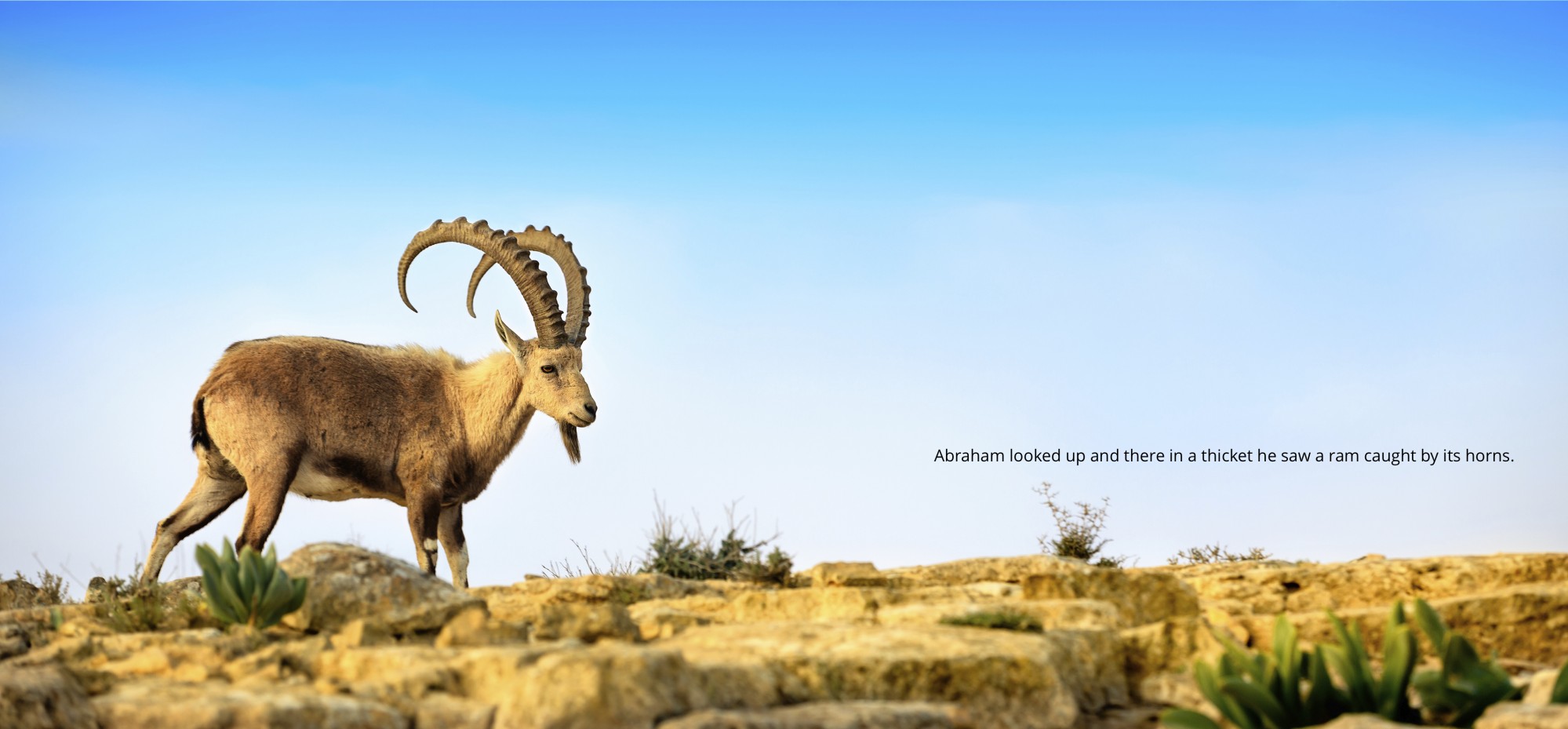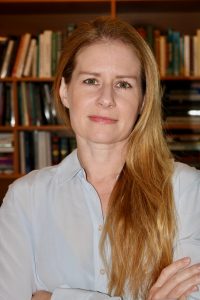I am a cultural anthropologist researching the ways people navigate the ethical dilemmas they encounter during their everyday lives and with people who are different than themselves.
I am the Principal Investigator of the ERC Consolidator Project The Praxis of Coexistence.
I am originally from New Paltz, New York. I did my Ph.D. in Anthropology at Princeton University (2011). I joined the faculty of the Department of Sociology and Anthropology at Tel Aviv University in the fall of 2013. I do my research in Israel/Palestine, the Mediterranean, and Europe, using ethnographic methods.
I live in Caesarea with my husband, Michael, and our three children, Jordan, Boaz, and Adar.
Research:
My research makes a significant contribution to several areas of knowledge, including:
Understanding the relationship between personal ethical transformation and public social transformation. Since my PhD research on the topic of conscience as a cultural phenomenon, I have been interested in understanding the ways ethical understandings are produced socially through combination of collective tradition and individual reflection, that is, the dynamics of freedom and constraint that operate on individuals in their ethical decision making (American Ethnologist 2011; Anthropological Quarterly 2015; Dissent without Resistance 2020). My research asked how conscience is conceptualized and mobilized for individuals and politically as well as how it is used to explain and justify controversial decisions and for activism (Anthropological Theory 2015; American Ethnologist 2017).
My research also contributes significantly to our understanding of the modern dynamics of citizenship and the relation between individuals, the state, and law. Specifically, a major theme of my research has been to investigate the way people imagine themselves (or don’t) in their role as citizens and the ethical implications that this raises for people (Cultural Anthropology 2016). I also consider the way individuals and the state make claims on each other and mutual implicate each other in relationships of responsibility and care (American Anthropologist 2016; PoLAR 2016; Current Anthropology 2019, Religion, State, and Society 2022). In my work on conscientious objectors, I examined how the state relates and responds to the threat of individual conscience and moral criticism, given that conscience is widely promoted as a fundamental human and political right (American Anthropologist 2012).
Questions of pluralism, tolerance, coexistence, and peace between different religious and ethnic groups are the focus of much of my research. In particular, I explore how people conceptualize ideas of ethnic and religious difference and how they understand their ethical responsibilities towards others. I began a large-scale research project on Israeli-Palestinian peace initiatives outside the mainstream peace camp amongst religious, traditional, and non-liberal populations. This research explores how these communities conceptualize peace and pluralism differently than liberal populations (American Sociologist 2022). It also examines how people hold different cultural and theological visions of peace, and how these divergent visions inform their everyday behavior and political stances (Hau 2019; European Journal of Cultural and Political Sociology 2020). This research also seeks to understand how incommensurable visions of peace can nevertheless be brought into conversation with each other (Political Theology).
An ethnographic examination of the public sphere and political democratic life has been a significant throughline in my research agenda. It has played a significant role in previous research (Ethnos 2013; JRAI 2016, American Ethnologist 2017). Furthermore, I have initiated a collaborative research network on reconsidering public reason and the public sphere through an anthropological lens with two colleagues, Charis Boutieri of King’s College London and Sami Everett of Cambridge University. In this collaborative network, we bring together cross regional and cross topical anthropological research on alternatives to the liberal public sphere. At this point there are two major products of this collaboration, one is a special issue we edited together entitled, Beyond Public Reason: The Emergence of Non-Liberal Public Spheres, which won the special issue competition and was accepted for publication at the leading journal disciplinary the Journal of the Royal Anthropological Institute (JRAI). The collections asks: What are the communicative conditions and legitimate genres for public deliberation? What are the acceptable political cultures of democracy? How do non-liberal practices of deliberation probe our visions of democratic governance and life? The second product is a grant we won from the Wenner Gren Foundation in order to host a workshop with a number of senior anthropologists from all over the globe, entitled “Political Life on the Edges of Europe”, which took place in Marseille France in June 2024 and reexamines some of the hegemonic norms of democratic culture and liberal political theory from the ethnographic context of the seam zones between Europe and its surrounding regions.
My research agenda has made consistent contributions to the anthropology of political liberalism and its discontents. My work considers liberalism as a varied empirical phenomenon and a lived subjectivity that structures assumptions regarding the common good on a cultural level, rather than only a set of abstract principles or philosophical commitment (Theory and Society 2018). I examine the ways different non-liberal populations encounter liberal forms of authority and pedagogies (Hau 2019; European Journal of Cultural and Political Sociology 2020).
Finally, my ongoing work contributes to the ethical life of the discipline of anthropology. My colleague, Carole McGranahan of the University of Colorado, and I initiated a major, multi-year project to rethink disciplinary ethics in the field of anthropology. We are co-editing a volume entitled Ethics and Ethnography (forthcoming).
Current Projects
ERC Consolidator Grant: The Praxis of Coexistence
September 2023-August 2028
This project examines cases of “ordinary” coexistence in situations of religious and ethnic diversity, seeking to understand how coexistence is actually practiced. This project, which was awarded an ERC Consolidator Grant entitled the Praxis of Coexistence, examines situations of coexistence in 6 different countries, Israel/Palestine, Turkey, Romania, Bosnia, France and England. In this project I ask: How do communities accommodate difference in spontaneous and culturally resonant ways? What resources do they actually draw on to maintain civil relations and avoid conflict and violence between the different religious and ethnic groups that cohabit the same space? This project will open theoretical and normative space for a broader range of approaches to coexistence, ones that are attuned to questions of deep difference, divergent worldviews, and diverse values. In contrast to studies on the effects of policy or structural conditions on the dynamics of coexistence, this project will demonstrate why we should also take culture and existing practice seriously when considering the dilemmas of diversity. In this project I am the PI orchestrating the whole project and supervising the work of 4 senior staff (lecturers and senior lecturers), 3 postdocs, and several graduate students. I seek to use this research to influence policy by including the production of position papers and making connections with policy makers as an explicit part of the research process. The preliminary results of this project have revealed strong themes of exchange and economic interdependence as key to questions of coexistence, introducing economic anthropology theories into the project bibliography.
Israel Science Foundation Grant: Public Reason in Turbulent Times October 2024-September 2029
The struggle to understand what it means to disagree well, or for reasonable people to disagree reasonably is one that many societies face. The ethic of coping with difference through public exchange has long been central to the democratic ideal. Deriving from liberal theories of the public sphere, the public reason framework intends to provide a neutral and universal platform for all to participate in the public sphere conversation. Theoretically, everyone can speak public reason. But many have found that its conditions of participation are restrictive and exclusionary, on the basis of culture, gender, religion, race, class, and more. Ethnography has contributed over the last few decades to revealing the exclusionary norms that are often only seen from the perspectives of those whose participation is blocked. In Public Reason in Turbulent Times, I turn to the generative theoretical potential of the ethnographic to consider the relationship between traditions of tolerance of social and political difference and models of public reason. The project explores the topics of communicative ethics and public reason in the service of the deliberative democratic process.
I am a professor in the Department of Sociology and Anthropology at Tel Aviv University.

